In today’s rapidly evolving technological landscape, the demand for advanced AI solutions is at an all-time high. Businesses across various sectors are keenly aware that harnessing the power of artificial intelligence can significantly enhance their operations, improve customer engagement, and drive innovation. As a result, the pursuit of effective AI agent development has become a top priority. However, navigating the complexities of creating intelligent agents that can seamlessly interact with users and perform diverse tasks requires both expertise and strategy. In this article, we will explore proven techniques and insights to accelerate AI agent development, empowering organizations to build sophisticated agents that not only meet but exceed expectations in functionality and performance. Whether you’re a seasoned developer or just starting your AI journey, these strategies will help you optimize your approach and unlock the full potential of AI technology.
Understanding the Essentials of AI Agent Development
The rapid advancements in artificial intelligence have prompted a growing interest in AI agent development, a process that focuses on creating intelligent systems capable of performing tasks autonomously. At its core, AI agent development involves understanding the capabilities and limitations of AI technologies, such as machine learning, natural language processing, and computer vision. These technologies work together to enable agents to perceive their environment, analyze data, and make informed decisions. By harnessing these tools, developers can create agents that not only execute predefined tasks but can also adapt and learn from their interactions, ultimately improving their performance over time.
A crucial aspect of AI agent development is designing the architecture that underpins the agent’s functionalities. This architecture often includes components such as perception, reasoning, learning, and action. By strategically integrating these elements, developers can create agents that behave intelligently and respond dynamically to changing circumstances. It’s also essential to incorporate feedback mechanisms, enabling agents to refine their decision-making processes based on outcomes and user interactions. Furthermore, ensuring that agents can operate within ethical boundaries and adhere to guidelines for responsible AI use is vital to fostering trust and acceptance among users.
Collaboration between interdisciplinary teams is another critical component of successful AI agent development. Experts in fields such as computer science, psychology, and human-computer interaction work together to create agents that not only perform well in technical terms but also resonate with users on an emotional level. This user-centric approach helps ensure that AI agents are intuitive and easy to interact with, ultimately enhancing user experience and satisfaction. As more organizations explore opportunities in AI agent development, the importance of designing systems that prioritize human engagement will only continue to grow.
In conclusion, understanding the essentials of AI agent development involves grasping the interplay between technology, architecture, and user interaction. As developers push the boundaries of what AI agents can achieve, they must remain aware of the ethical implications and the need for responsible deployment. By focusing on effective collaboration and user experience, the future of AI agent development holds exciting prospects that could revolutionize various industries, making our interactions with technology more seamless and productive.
Best Practices for Successful AI Agent Development
In the rapidly evolving landscape of artificial intelligence, successful AI agent development is a critical focus for businesses and tech enthusiasts alike. One of the foremost best practices in this field is to clearly define the purpose and objectives of the AI agent at the outset. By establishing specific goals, whether it’s for automating customer service, executing complex data analyses, or enhancing user experiences, developers can tailor the agent’s functionalities accordingly. This clarity not only streamlines the development process but also ensures that the end product effectively meets user needs.
Another essential aspect of effective AI agent development is to prioritize user experience. An AI agent should be designed with the end user in mind, emphasizing ease of interaction and accessibility. Through rigorous user testing and feedback, developers can identify pain points and refine the interface for better engagement. Additionally, employing natural language processing capabilities can enhance communication, making the AI agent more intuitive and effective in understanding and responding to user queries. Striving to create an emotionally intelligent agent that can recognize user sentiment can also elevate the overall user experience.
Collaboration and iteration are key elements in the development of AI agents. Engaging interdisciplinary teams, including experts in machine learning, UX design, and domain-specific knowledge, fosters a comprehensive approach that enhances creativity and effectiveness. Continuous iteration allows for the incorporation of new data insights and user feedback, which not only improves the agent’s performance over time but also aligns it more closely with evolving user needs. Regular updates and maintenance ensure that the AI remains relevant and capable of adapting to changing circumstances.
Lastly, ethical considerations must play a central role in AI agent development. Implementing guidelines for transparency, privacy, and accountability is essential to build user trust and comply with regulations. As AI systems become increasingly prevalent, developers should be vigilant about potential biases in their algorithms and strive to create fair and equitable AI agents. By adhering to these best practices, organizations can pave the way for effective AI agent development that is not only successful in meeting business objectives but also beneficial for users and society as a whole.
Streamlining the Process: Tips for Efficient AI Agent Development
In the rapidly evolving landscape of artificial intelligence, the development of AI agents has become a fundamental aspect of enhancing automation and user experience across various industries. Streamlining the process of AI agent development is crucial for organizations aiming to harness the power of AI effectively. By focusing on fundamental principles, teams can expedite the development lifecycle while ensuring robust functionality. This approach not only saves time and resources but also leads to more resilient and capable AI solutions.
One of the key strategies for efficient AI agent development is to establish clear objectives from the outset. Before diving into the technicalities, it’s essential to define the primary goals and desired outcomes of the AI agent. This will help in crafting a well-structured framework that guides the development process, allowing team members to align their efforts and avoid potential pitfalls. Additionally, breaking down the project into manageable milestones can facilitate progress tracking and adjustments as necessary, ensuring that the team remains focused and on the right path.
Collaboration is another pivotal factor in streamlining AI agent development. Engaging cross-functional teams that include data scientists, software engineers, and domain experts can significantly enhance the quality of the end product. By leveraging diverse skill sets and perspectives, teams can address challenges more creatively and efficiently. Regular feedback loops and iterative testing also play an important role in refining the AI agent, enabling developers to learn from real-world interactions and performance metrics. This collaborative approach fosters a culture of continuous improvement, ultimately leading to more sophisticated AI agents that meet user needs effectively.
Lastly, utilizing existing AI frameworks and tools can drastically reduce development time and complexity. Instead of starting from scratch, organizations can leverage pre-built models and libraries that are already optimized for various tasks. This not only accelerates the development timeline but also allows teams to focus on customizing and enhancing their agents based on specific use cases. By integrating these best practices into the AI agent development process, organizations can streamline their efforts and pave the way for innovative solutions that drive efficiency and engagement.
Navigating Challenges in AI Agent Development
The rapid advancement of artificial intelligence has led to the emergence of AI agents capable of performing complex tasks and enhancing various processes across industries. However, navigating the challenges in AI agent development is crucial to ensure that these systems are effective, ethical, and aligned with user expectations. One of the primary hurdles developers face is the intricacy of designing algorithms that can comprehend and interpret vast amounts of data while making decisions in real-time. The complexity increases with the need for AI agents to adapt to dynamic environments, requiring continuous learning and refinement of their decision-making processes.
Another significant obstacle in AI agent development lies in addressing ethical considerations. As these agents become more integrated into everyday life, developers must prioritize transparency and accountability in their design. This includes ensuring that AI agents operate within the bounds of predetermined ethical frameworks and do not inadvertently perpetuate biases present in the data they utilize. Navigating this intricacy involves collaboration among stakeholders, including ethicists, developers, and users, to establish clear guidelines and best practices that govern AI behavior and foster trust among users.
Moreover, the regulatory landscape surrounding AI technology is continuously evolving, adding another layer of complexity to the development process. Developers must stay informed about existing and emerging regulations that could impact their AI agent functionalities, especially concerning privacy, data security, and user consent. Adapting to these changes requires flexibility in design and implementation, as well as proactive engagement with policymakers to contribute valuable insights that shape effective and relevant regulations.
Ultimately, the journey toward successful AI agent development is fraught with challenges, but these obstacles also represent opportunities for innovation and growth. By embracing a collaborative mindset and prioritizing ethical guidelines, developers can create AI agents that not only meet technical specifications but also enhance user experiences in a responsible and trustworthy manner. As the field continues to evolve, a focus on overcoming these challenges will be essential for the sustainable advancement of AI technologies.
Leveraging Advanced Techniques for Optimal AI Agent Growth
The rapid evolution of artificial intelligence has opened up new avenues for enhancing AI agent development, allowing organizations to leverage advanced techniques for optimal growth. As technology continues to advance, it’s essential for developers to embrace innovative methodologies that maximize the performance and capabilities of AI agents. This involves not only employing robust machine learning algorithms but also integrating strategies that foster adaptability, efficiency, and user engagement.
One of the most promising approaches in AI agent development is the utilization of reinforcement learning, which allows agents to learn from their interactions within an environment. By simulating real-world scenarios, agents can refine their decision-making processes and improve their responses to various stimuli. Coupled with deep learning techniques, these agents can process massive amounts of data, enabling them to recognize patterns and make predictions with remarkable accuracy. This combination of reinforcement learning and deep learning techniques drives the continuous growth of AI agents, pushing the boundaries of their potential.
Additionally, incorporating natural language processing (NLP) into AI agent development enhances their ability to communicate effectively with users. By enabling agents to understand context, tone, and intent, organizations can create more intuitive and responsive systems that foster better human-agent interactions. This not only improves user satisfaction but also increases the overall efficiency of operations, as agents can more accurately interpret and address user needs. Furthermore, implementing advanced analytics can help teams track agent performance over time, guiding further refinements and ensuring that the agents evolve alongside changing user expectations.
In summary, leveraging advanced techniques for optimal AI agent growth transforms the landscape of AI agent development. Utilizing reinforcement learning, enhancing communication through NLP, and employing data-driven analytics creates a robust framework for the continuous evolution of AI agents. As organizations embrace these strategies, they can position themselves at the forefront of AI innovation, unlocking new possibilities for engagement, productivity, and service delivery.
Key Components to Consider in AI Agent Development
In the rapidly evolving landscape of technology, AI agent development stands at the forefront of innovation. As businesses and developers recognize the immense potential of artificial intelligence, it becomes crucial to identify and comprehend the key components that contribute to the successful creation of AI agents. The first of these components is the data architecture. AI agents thrive on data, making it essential to establish a robust data collection and management system. Quality data feeds enhance the learning algorithms, enabling the AI agents to make informed decisions and predictions. Ensuring that the data is diverse, representative, and relevant to the intended application is vital for achieving high performance.
Another significant aspect of AI agent development is the choice of algorithms. The effectiveness of an AI agent largely depends on the algorithms employed during its training and operation. Developers must evaluate various machine learning models, such as supervised, unsupervised, or reinforcement learning, depending on the specific goals and context of the AI agent. The right algorithm not only impacts the accuracy of the agent’s outputs but also its speed and efficiency. Additionally, ongoing research in deep learning and neural networks presents new opportunities for enhancing AI capabilities, making it imperative for developers to stay informed about advancements in this field.
Moreover, ethical considerations play a pivotal role in AI agent development. As these agents become more integrated into daily life and business operations, issues surrounding bias, privacy, and transparency must be addressed. Developers must strive to create AI agents that are not only effective but also fair and accountable. Incorporating guidelines for ethical AI helps in gaining user trust and ensuring compliance with regulations. This is especially critical in sensitive areas such as healthcare, finance, and public services, where the implications of AI decisions can profoundly affect lives.
Lastly, user experience should never be underestimated in the AI agent development process. These agents need to be intuitive and user-friendly to facilitate seamless interaction with users. Understanding the target audience and incorporating their feedback during the design and testing phases is vital in creating AI agents that meet user needs effectively. By focusing on these key components—data architecture, algorithms, ethical considerations, and user experience—developers can craft AI agents that are not only powerful and efficient but also responsible and accessible to a broad range of users.
Future Trends and Innovations in AI Agent Development
As we move further into the 21st century, the landscape of AI Agent Development is evolving rapidly, driven by advancements in machine learning, natural language processing, and robotics. These innovations are paving the way for more sophisticated AI agents capable of understanding and responding to human emotions, contexts, and intentions with remarkable accuracy. The future promises a shift from traditional rule-based systems to AI agents that can learn from their interactions with users over time, allowing them to adapt and provide more personalized experiences.
One of the most exciting trends is the integration of AI with other emerging technologies, such as the Internet of Things (IoT) and augmented reality (AR). This convergence enables AI agents to gather and process real-time data from their environments, leading to smarter decision-making and improved situational awareness. For instance, in smart homes, AI agents could analyze data from various IoT devices to optimize energy consumption and enhance user comfort, while in industrial settings, they could predict equipment failures and streamline maintenance processes.
Furthermore, the ethical considerations surrounding AI Agent Development are gaining increasing attention. As these agents become more integrated into daily life, it is essential to address concerns regarding privacy, bias, and accountability. Developers are exploring frameworks to ensure that AI agents operate transparently and align with user values. Techniques like federated learning and differential privacy are being harnessed to protect user data while still allowing AI agents to learn and improve.
In conclusion, the future of AI Agent Development looks promising, characterized by enhanced capabilities and deeper integration into everyday applications. As technology continues to evolve, the focus will remain on not only advancing AI’s potential but also ensuring that it does so in a responsible and ethical manner. The ultimate goal is to create AI agents that not only serve functional purposes but also enrich human experiences, fostering a symbiotic relationship between machines and their users.
Implementing Cutting-Edge Solutions for Accelerated AI Agent Growth
In the rapidly evolving landscape of artificial intelligence, the focus on implementing cutting-edge solutions for accelerated AI agent development has never been more crucial. As organizations strive to harness the full potential of AI agents across various sectors, it becomes evident that the traditional approaches might not suffice. Embracing innovative technologies such as machine learning, natural language processing, and advanced data analytics can significantly enhance the capability and efficiency of AI agents, paving the way for a new era of automation and responsiveness. By integrating these technologies, developers can create AI agents that not only learn and adapt in real-time but also provide superior user experiences that align closely with human behaviors and preferences.
One of the key drivers of accelerated AI agent growth is the adoption of cloud-based platforms that offer scalability and flexibility. These environments allow for rapid deployment and easy updates, facilitating the continuous improvement of AI systems. Additionally, leveraging collaborative tools that enable interdisciplinary teams to work together can enhance the AI agent development process. When software engineers, data scientists, and domain experts converge, the result is a more robust understanding of user needs and potential challenges, leading to the creation of smarter, more efficient agents. Furthermore, the use of simulation and testing frameworks can ensure that these AI agents function optimally in real-world scenarios, thereby reducing the time spent on troubleshooting and revisions.
As AI technology advances, ethical considerations and responsible AI practices must also be integrated into the development process. Organizations must ensure that AI agents operate transparently and do not perpetuate biases that could harm users or communities. Incorporating diverse datasets and promoting an inclusivity-driven development approach will foster equity and improve the AI agents’ ability to serve a wider range of users effectively. Continuous evaluation and feedback loops are vital in this context, allowing developers to adjust algorithms and training methods based on real-world performance and user interaction.
Ultimately, the future of AI agent development will rely on a balanced approach that merges technological innovation with ethical considerations. By harnessing cutting-edge solutions and fostering collaboration across disciplines, organizations can accelerate the growth of intelligent agents that not only meet the demands of today but also anticipate the challenges of tomorrow. As we continue to explore the intersection of human intelligence and artificial systems, the potential for transformative impact in various fields—from healthcare to customer service—remains limitless. Embracing these advancements today can lay the groundwork for an exciting and responsible AI-driven future.









